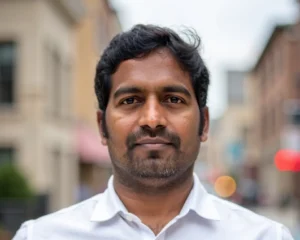Understanding the Unique Challenges of Drug Addiction in India

When you have a strong urge to use drugs or are unable to control your dependency on drugs to carry on with your life, you might be suffering from drug addiction or substance disorder. It is a disorder that affects your brain and behaviour, compelling you to continue with these habits even though you know the harm they are causing.
More than 2 crore Indians are drug addicts, and more than 72 lakh need treatment. Drug addiction in India is a severe and growing problem. But there is hope! Many drug addiction centres in India are there to support you throughout your journey to be substance-free.
Challenges of Drug Addiction
Drug addiction, encompassing substances like cannabis, opioids, sedatives, inhalants, cocaine, hallucinogens, and more, presents unique challenges for those struggling in India.
- While drug addiction centres in India offer help, their availability can be limited in certain locations, hindering treatment for those who need it most.
- Drug addiction remains a sensitive topic in India, and the stigma surrounding it restricts access to support. This stigma can lead to social isolation and, consequently, a return to drug use.
- Compared to other medical treatments, many drug addiction centres in India can be relatively expensive, putting them out of reach for many struggling individuals.
- A lack of awareness about drug abuse, its consequences, and the existence of treatment and rehab centres contributes to the high number of drug addicts in India.
- The challenges listed above significantly increase the risk of relapse and hinder recovery from addiction.
Causes of Drug Addiction
While the causes of drug addiction can vary among individuals, several key factors contribute to its development:
- When faced with intense negative emotions like anger, frustration, sadness, fear, or rejection, some individuals may turn to drugs as a way to escape the discomfort rather than dealing with them in healthy ways.
- Certain places, people, or objects can trigger drug use for some addicts. These elements become associated with their cravings, making it difficult to resist drugs in those environments.
- Boredom can lead some people to seek out new or different experiences, unfortunately, for some, this can lead to drug use.
- Having a family member who struggles with addiction can be a significant influence. Witnessing a close relative’s struggles can increase the risk of addiction in others.
- Individuals battling with mental health conditions like stress, anxiety, depression, and loneliness may be more likely to self-medicate with drugs to find temporary relief.
- Peer pressure, particularly among young people, is a major factor contributing to drug use. The desire to fit in with a certain group can lead some to make risky choices.
- Conflicts with family, friends, romantic partners, classmates, colleagues, or any loved one can lead some individuals to use drugs as a coping mechanism.
- Early exposure to drugs increases the risk of addiction later in life, as it can become normalised behaviour.
- Long-term use of certain medications, even when prescribed for medical reasons, can lead to dependence and potential addiction if not carefully monitored.
Negative Effects of Drug Addiction
Drug addiction has a wide range of negative effects, both short-term and long-term. The severity of these effects can vary depending on the type of drug used, and the amount and frequency of use.
Short-term effects of drug addiction can include cardiovascular issues like increased heart rate, high blood pressure, stroke, and heart attack. These problems can worsen significantly if left untreated.
Long-term health consequences can include lung complications, cancer, AIDS, and hepatitis. These conditions can be life-threatening.
What are the risks if left untreated?
- Unsanitary drug use practices significantly increase the chance of contracting infectious diseases, which can spread rapidly.
- Impaired judgment and awareness due to drug use can lead to frequent accidents, ranging from minor to fatal.
- Addiction can exacerbate mental health struggles, leading to suicidal thoughts and potential attempts.
- Drug addiction often disrupts relationships with family, friends, and romantic partners. The focus on obtaining and using drugs can damage social ties.
- Both the body and mind suffer from drug addiction. Physical health problems are common, and mental health issues like depression and anxiety can worsen.
- Drug addiction can drain financial resources. Users may spend all their savings on drugs, leading to severe financial problems.
Therapies for Drug Addiction
Therapists are key to battling addiction. They assess severity, address mental health ties, and tailor treatment plans with therapy and medication. Their support, evidence-based methods, and focus on behaviour change equip individuals for long-term recovery. Different therapies like Cognitive Behavioural Therapy (CBT), Dialectical Behavior Therapy (DBT), and Motivational Enhancement Therapy (MET) are available for drug addicts.
-
Cognitive Behavioural Therapy (CBT)
One of the most effective therapies for drug addiction is CBT. This therapy tackles drug addiction by helping people identify negative thought patterns that fuel cravings and relapse. It equips them with skills to challenge these unhelpful beliefs and develop healthier coping mechanisms. This empowers individuals to manage urges, avoid triggers, and build a life that supports their recovery.
-
Dialectical Behavior Therapy (DBT)
DBT works like Yin and Yang. It helps you focus on accepting your reality as it is while also helping you learn to change unhealthy behaviours. The therapist will teach you new skills to improve your emotion regulation. Through DBT, you’ll learn mindfulness, distress tolerance, and emotion regulation skills.
-
Motivational Enhancement Therapy (MET)
MET, a therapeutic approach, concentrates on fostering motivation for change specifically beneficial for those experiencing ambivalence regarding abandoning their addiction. Therapists aim to nurture a sense of willingness, confidence, and a constructive outlook on change.
Why Rehabilitation Centre for Drug Addiction Matters?
Many rehab or drug addiction centres in India play a pivotal role in supporting individuals battling with drug addictions. These facilities provide holistic treatment programs, tailored to individual needs, and staffed by expert professionals. Rehab treatment is very helpful for individuals seeking freedom from substance abuse.
If you’re considering rehab in India, it’s important to find a facility that offers a good fit. Research their programs, amenities, and areas of expertise. Don’t hesitate to reach out to them with any questions you may have. Taking this first step can be life-changing and with the right help, recovery from addiction is possible.
Self-Care for Drug Addicts
- Talking openly with a trusted friend or family member about your struggles is a powerful first step towards recovery. Sharing your burden can bring immense support and understanding.
- If you’re already in rehab, religiously follow your treatment plan. The new, healthier you that emerges after treatment will be worth the effort.
- Identify and avoid high-risk situations or places where your triggers are strong. Engage in different activities to keep yourself occupied and away from temptations.
- Reaching out for professional help is a sign of strength, not weakness. A therapist can provide invaluable guidance and support on your journey to recovery.
- Planning and following a healthy lifestyle with a good diet and exercise habits can significantly boost your well-being and aid in overcoming addiction.
- Consider taking up new, healthy hobbies to keep your mind engaged and provide a positive outlet for your energy. This can be a great way to stay focused on recovery.
Explore the dangers and prevalence of Spot Cocaine in our comprehensive guide to substance abuse awareness.
Recovering from drug addiction is a challenging journey, but with perseverance, it’s achievable. Drug addiction centres in India offer invaluable support and equip you with the tools to manage your addiction. Remember, it’s not about recovery speed; it’s about your long-term commitment to fighting for yourself. You have the strength to overcome this challenge.

Professional Branding Strategy Services: Why Your Brand Needs More Than a Logo

The Rise of Modern Payment Platforms: What to Try This Year

How Advanced Freight Broker Software Shapes a Profitable, Productive Supply Chain

AI in Marketing Is No Longer a Buzzword — It’s the Strategy

Srinivasa Rao Challa Champions AI-Powered Financial Systems for a Smarter, Safer Economy

6 Weight Loss Treatments You Can Get After a Consultation

Biohackers Are Obsessed With Hyperbaric Oxygen—Here’s Why

Ways Head Injuries Disrupt Long-Term Plans








